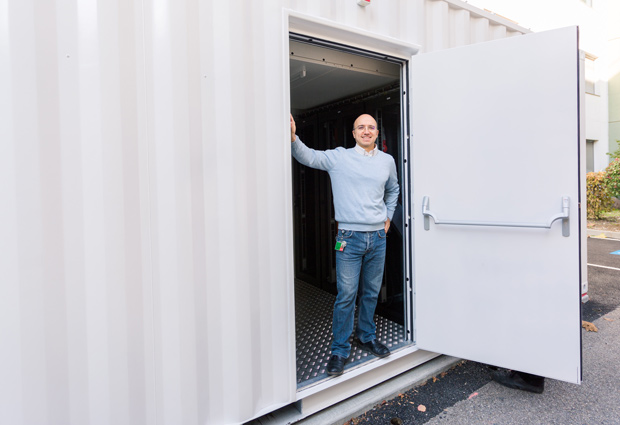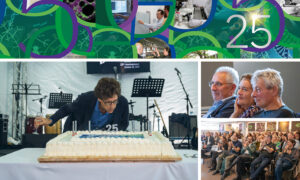
Big data, cool servers
Upgraded server room is ready to take the heat at EMBL Grenoble

Quicker processes and easier access to the structural biology services and infrastructures in EMBL’s Grenoble site mean more analyses and more data. The cryo-electron microscope due to arrive in 2017 at ESRF will further this trend: it generates images with such a high resolution that the complete imaging of a biological element can take up to 50 terabytes of space! Computer servers store this data and make calculations with it. As storage and computational demand is increasing, Rémi Pinck, head of the Computer and Network Team with EMBL Grenoble IT Services, needed an innovative solution to keep up while remaining energy-efficient.
“Although modern servers are better able to cope with higher temperatures, our computer room contains a mix of old and new systems. These include critical servers which we can’t afford to stop and some which require sophisticated cooling systems. I decided to separate the storage and the calculation servers in order to also divide the need for cooling: the storage servers will stay in the current computer room, while calculation servers will move to a container outside,” explains Rémi.
The special container was delivered by an immense crane and placed in a quiet and sheltered spot between the EMBL and the CIBB buildings. The air in Grenoble is generally cool enough to keep the computers running in good conditions with a moderate amount of energy.
“When the temperature gets high, water will be injected at the entrance to the container and turned into gas with a cooling effect – it can lower temperatures of 42 degrees Celsius down to 32. We will know how effective this system is after this coming summer. If it works, it will be one of the first cooling systems of this size in Europe to not use any hydrofluorocarbons, a powerful greenhouse gas, for cooling such large items. If it is not sufficient, the container can be adapted to receive a small complementary traditional cooling system,” anticipates Rémi.





